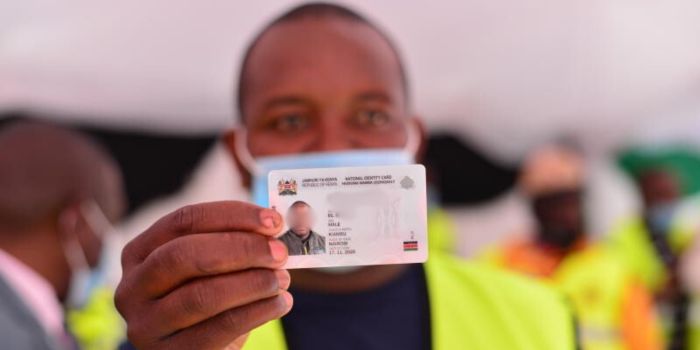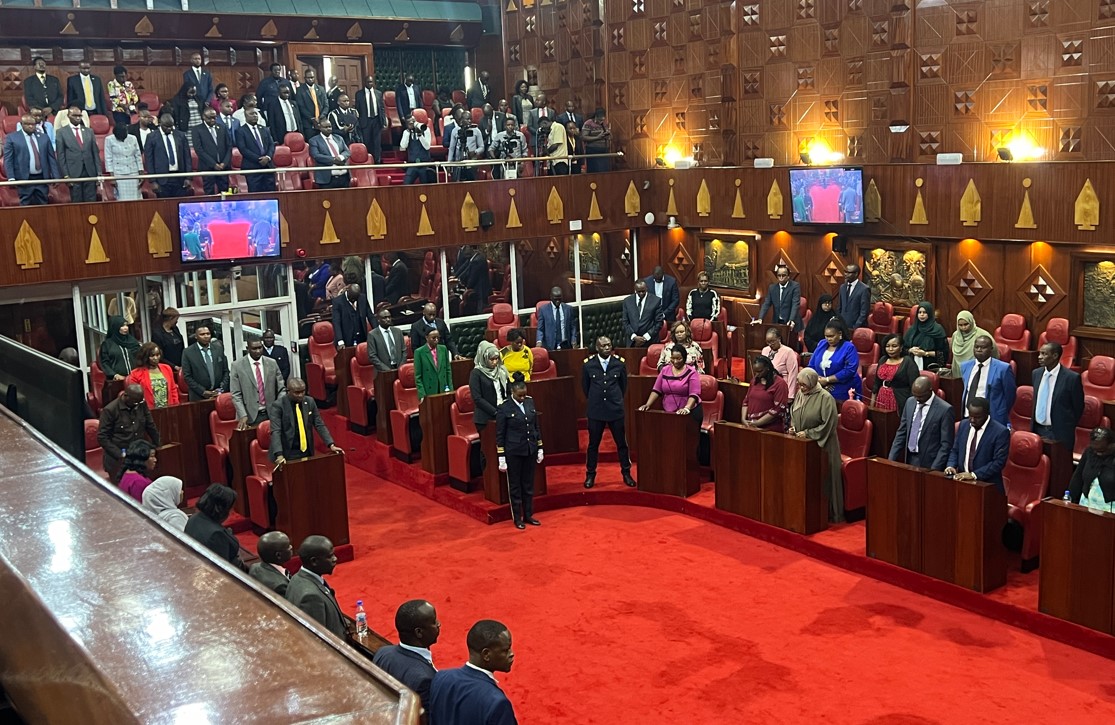Court lifts order barring issuance of Maisha cards

Immigration PS Julius Bitok informed the court in his affidavit that the court had vacated a similar order it had issued earlier this year in response to a suit by Katiba Institute.
More To Read
- Education ministry launches county forums to address capitation issues, stalled promotions
- Free education here to stay- PS Julius Bitok clarifies after uproar
- KNEC unveils digital system that allows real-time certificate verification in bid to curb use of fake papers
- Government launches national ID registration for 18-year-old secondary school students
- Government unveils CBE to replace CBC, promising skills-focused learning and 100pc transition
- CBC system: Uncertainty looms for Grade 9 learners amid school choice delays
The High Court on Monday lifted its orders barring the issuance of the Maisha Card (3rd Generation ID), paving the way for the government to resume its rollout to new applicants.
In his ruling, Justice Mugambi Lawrence Nthiga said the petition by Haki na Sheria was based on an inaccurate representation of facts.
On July 25, the court barred the rollout of the cards following a petition by Haki na Sheria that sought to halt an alleged mass rollout of the Maisha card based on a press statement that had issued an update on the progress of the card rollout.
In the ruling issued by Justice Mugambi, the alleged mass rollout of the cards that informed the court order was incorrect.
However, today, he said it was not in the public interest to maintain the interim orders he had issued last month.
"The press statement that was alluded to by the Petitioner/Respondent to justify the need to issue a conservatory order was merely an update of the progress of the uptake of identity cards by the citizens due to numerous concerns by the citizens about the delays and did not thus denote a commencement of mass roll-out as intimated by the Petitioner/Respondent in its application of July 23, 2024, and understood by the Court in issuing the conservatory order," the judge ruled.
He further noted that a similar petition filed last year by the Katiba Institute is still active in court.
"The object of the order was to stay the roll out of Maisha Cards, which is a common denominator in both applications. If then, as of November 30, there was an application to stop the rollout of the Maisha card, how can the press statement of July 22 have been about the commencement of the same product? In this, I agree with the second respondent's affirmation of the fact that this process was an ongoing experience contrary to what the petitioner or respondent had presented in seeking the conservatory order, a fact which this court heavily relied on in issuing the conservatory, as is apparent on the face of that order," the judge ruled, adding that res judicata bars the court from tying a suit if there exists another decision of a competent court on the same issue.
 Immigration Principal Secretary Julius Bitok. (Photo: X/Julius Bitok)
Immigration Principal Secretary Julius Bitok. (Photo: X/Julius Bitok)
Immigration PS Julius Bitokm, in his affidavit, stated that the court had vacated a similar order it had issued earlier this year in response to a suit by Katiba Institute.
He further argued that the conservatory order led to a complete halt in the issuance of identification or registration documents to any Kenyan who is 18 or older, as well as the replacement of identity cards.
This resulted in a blanket suspension of the right to registration, as guaranteed by Chapter 3 of the Constitution.
Bitok added that court delays were causing the backlog to increase by 10,000 cases per day. A longer delay, the PS argued, would have precipitated a crisis of unimaginable proportions.
"Without those Kenyans getting these identity cards, it could mean a loss of job opportunities. They may not access other crucial documents like driving licenses, registration of companies and businesses, and so on," he added in his affidavit.
As of July 31, 2024, the backlog of registrations stood at 1,215,095.
The court concurred with Bitok and observed that the application was based on the same facts that informed the Katiba Institute's petition, adding that the order that followed affected the entire Maisha Ecosystem despite there being no new development or change of circumstance in the rollout.
Justice Mugambi further noted that the immigration department had complied with the law, conducted a Data Protection Impact Assessment, which the Data Protection Commissioner accepted, and added that if the court finds a breach, the aggrieved parties can still seek remedies under Part VIII of the Data Protection Act or as the court may direct.
Top Stories Today













































